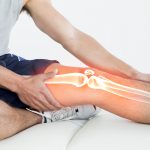1. Different insulin is categorised according to their peak and duration.
a: True – Insulin is categorised based on
onset, peak, duration and concentration. Onset means the how quickly insulin acts; peak refers to the time taken to reach its maximum impact and duration means how long insulin stays in the system before it wears off. The concentration refers to the number of insulin doses present in an insulin vial or a pen. Based on these, insulin is categorised into fast-acting, intermediate-acting and long-acting insulin.
2. Snacking is a good option to satisfy mid-meal hunger in Diabetes.
a: True – People with Diabetes are advised to take smaller meals to manage calorie intake and portion control. Mid-meal snacking can help curb hunger and may help prevent overeating during meals. One often tends to eat sugary or fat foods between the meals, which may affect the calorie intake. Instead, one can choose foods which contain fewer carbohydrates such as fruits, salad and nuts. These foods provide a nutritious energy boost without adding too many calories.
3. The functioning of the kidney includes –
d: All of these – The kidneys are an important part of the renal system and filter waste from the blood. They expel waste and excess nutrients present in the body through urine and faeces. Kidneys also help manage blood pressure and glucose levels.
They release hormones to regulate blood pressure, manage the production of red blood cells in the blood and also produce vitamin D that keeps the bones strong and healthy.
4. People with Diabetes are encouraged to eat a lot of
c: Fibre – Dietary fibre aids in improving metabolism. It is of two types – soluble and insoluble fibre. Soluble fibre binds and leads to the slower release of fat and sugar in the blood. This helps to regulate blood glucose levels and lower cholesterol level. It also promotes good bacteria in the gut and improves immunity. Insoluble fibre, also known as roughage, is not broken down during digestion and adds bulk to the faeces.
5. People with Diabetes do not need to cut down on their salt intake.
b: False – People with Diabetes may have an increased risk of developing heart disease and kidney disease. Excess intake of salt may increase blood pressure which may increase the risk of having a heart attack and stroke in people with Diabetes. Keeping salt consumption under check and regular monitoring of blood pressure helps prevent heart complications in Diabetes.
6. A person above the age of 20 should periodically check his or her cholesterol levels.
a: True – Cholesterol levels vary in people according to their age, gender, body mass index (BMI) levels, diet, physical activity etc. Over the time, cholesterol levels rise and may lead to the development of blockages in the arteries. Although it may take several years for the formation of arterial blockages, early detection of cholesterol levels may help prevent the occurrence of a heart attack. It is recommended to check your cholesterol levels regularly after the age of 20 to ensure heart health.
7. Which of these foods contain a high amount of protein?
d: Meats, poultry and fish – Protein is one of the three main macronutrients that provide energy to the body. Consumption of protein helps maintain tissue health, builds muscles and repairs any damages in the body. Foods such as meats, milk, eggs, fish, pulses and some vegetables such as cauliflower contain high protein.
8. High LDL (bad cholesterol) level can lead to –
d: All of these – Low-density lipoprotein or LDL cholesterol causes deposition of plaque in the arteries and leads to heart disease. People with Diabetes are recommended to keep their cholesterol levels within the normal range as high cholesterol levels may increase the risk of having a heart disease and heart failure. It also increases the risk of stroke and death by heart attack. In order to lower LDL cholesterol levels, cholesterol-
9. Even a moderate level of physical activity can be beneficial.
a: True – Physical activity improves blood circulation, muscle and bone health and metabolism and helps keep active throughout the day. It also stimulates a healthy secretion of hormones and boosts immunity, thereby reducing the chances of falling ill. Moderate physical activity every day can help prevent the risk of various health conditions such as Diabetes, heart disease and hypertension.
10. Which of these is not a symptom of Diabetes?
b: Muscle pain – Muscle pain may be a symptom of various factors such as severe dehydration, stress and fatigue. Other health conditions such as a sprain, thyroid disease, nervous disorders, flu and arthritis may cause muscle pain. Though high blood glucose levels may affect the muscles in the long-term, muscle pain does not indicate presence of Diabetes.














